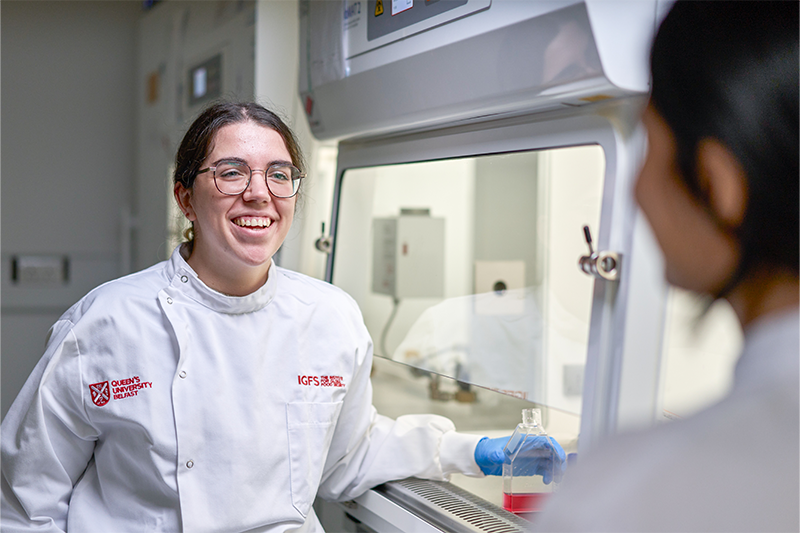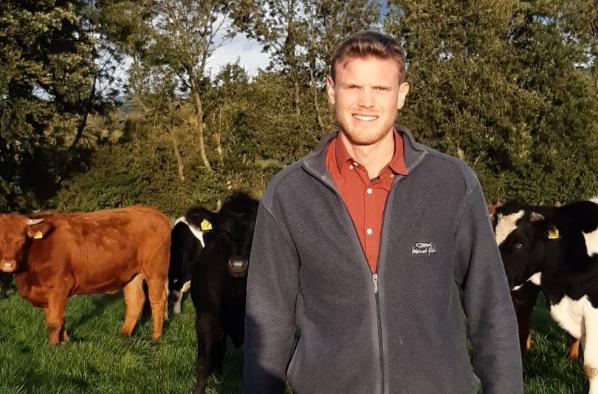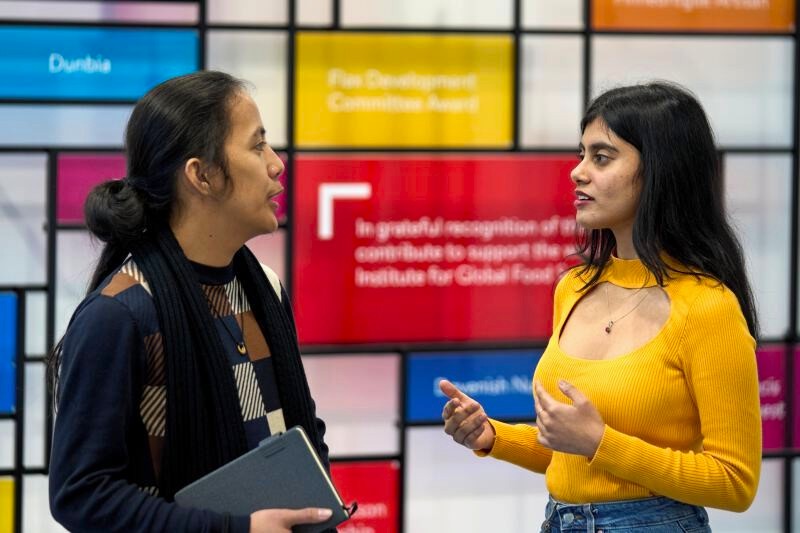Carried out at IGFS, in partnership with AFBI NI and the University of Reading. 4-year study, funded by Food BioSystems DTP.
What is your PhD about? It’s about trying to make agriculture more sustainable and less harmful to the environment. In my particular project, we will be trialling willow as a feed supplement in grass-based pasture systems in the UK and Ireland. The work will be carried out in partnership with AFBI and also Reading University.
We all know now that agricultural emissions, particularly from ruminant livestock such as cattle, are a big contributor to climate change. But there are solutions and scientists are now providing the evidence for this. I’ve a passion for the dairy industry and I believe we can transform it so much. It’s exciting to be part of a big sea-change like that – future-proofing farming to meet the global challenge.
How supported do you feel? I feel very supported by my supervisor, Dr Katerina Theodoridou and by IGFS Director Professor Nigel Scollan – he’s a great teacher and has been a great encouragement to me. I also feel supported by the Food BioSystems DTP – I get to meet other PhD students through that, which is great. Online seminars available through the Graduate School were very useful when I first started my PhD as everyone was still working remotely and I did find that hard. I’m much happier now that I’m back on campus and I love the energy I get from seeing and talking to other students and researchers. I like a bit of both – I need the buzz of being around other people, but then I retire to the McClay Library for a few hours for some peace and quiet and to get some serious work done.
What are your hopes for the future? I’m a great believer in applying science to the real world. I would like to commercialise my research and start a business. I’m passionate about coming up with solutions for carbon-net-zero and adding value to food systems. I’m from a farming background and I’ve worked in agriculture and the agrifood industry in New Zealand and the US. So I would see myself going into industry but with a strong research element – eg. creating a spinout company.
Would you encourage others to do a PhD? I think if it can help you get to where you want to go, then definitely. It’s not something that was ever in my plan, to be honest. I always wanted to work in the agrifood industry. I’ve tried a few different things in terms of farming and agrifood. I also did a placement year at Ohio State University. I think these things are all important in trying to work out what it is you want. I didn’t rush into a PhD and I think it’s important to explore other options and make sure it’s really for you. When this PhD came up, it was right up my street, because it has that practical element to it – trying to get the science out there into the real world, where it can have impact. That’s what I’m most interested in.



